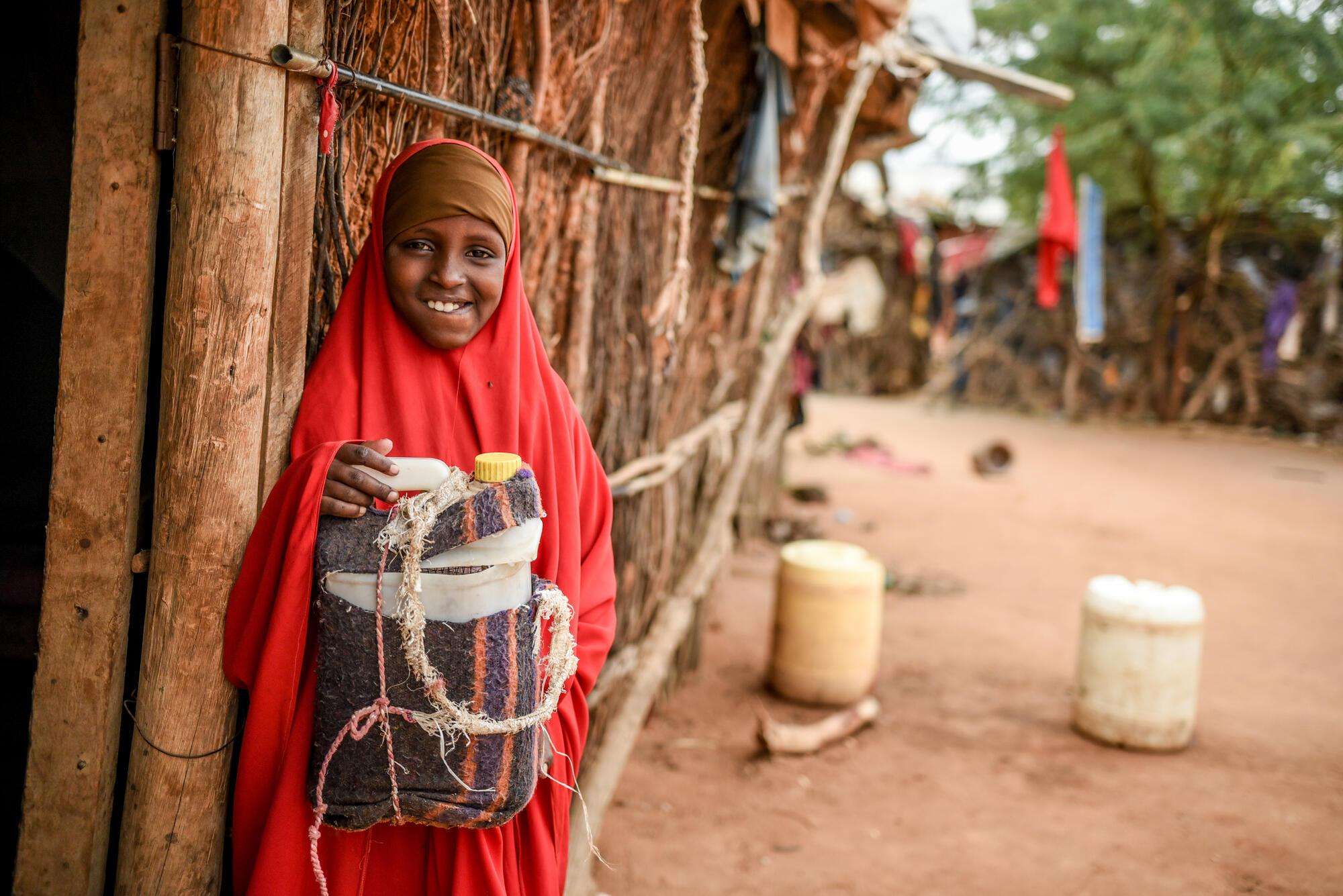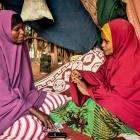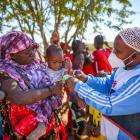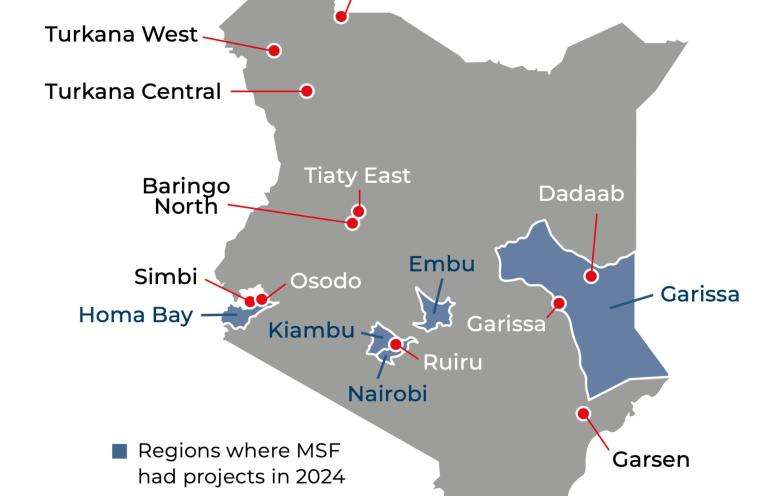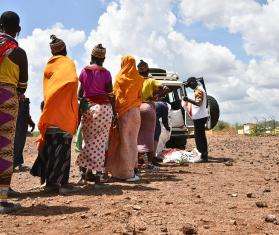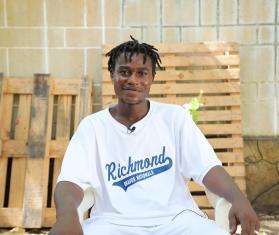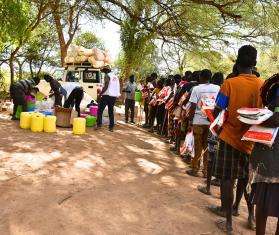In Mombasa, we supported three health facilities to cater to the specific needs of vulnerable adolescents and young adults, such as people with disabilities, the LGBTQI+ community, individuals living on the streets, and people who engage in sex work or use drugs.
In Nairobi, our Lavender House clinic offered medical care and social support to people affected by violence—including sexual violence—in the Eastlands area. During the protests in July, our clinic dispatched a medical team to treat the injured. Our youth-friendly center also continued to run medical services, psychosocial support, recreational activities, and educational programs throughout 2024.
MSF responded to several other emergencies during the year. In March, extensive flooding caused hundreds of casualties and destroyed homes and livelihoods. Our teams launched interventions in Nairobi, Nakuru, Homa Bay, Tana River, and Garissa counties, providing medical assistance as well as clean water, jerry cans, and warm clothes for children. We also responded to outbreaks of malaria in Baringo and Turkana counties, measles and Rift Valley fever in Marsabit county, and measles in Dagahaley camp.
In the displacement camps in Baringo county, we launched a response to support victims and survivors of sexual and gender-based violence. In Homa Bay country, we continued to run two adult wards, the tuberculosis ward, a Kaposi’s sarcoma clinic, and a post-discharge clinic at the hospital, as well as chronic disease clinics in two health centers.
After five years of supporting the provision of health and social support for people who use drugs in Kiambu, we handed over activities to the county Department of Health and a patient-led community-based organization.
